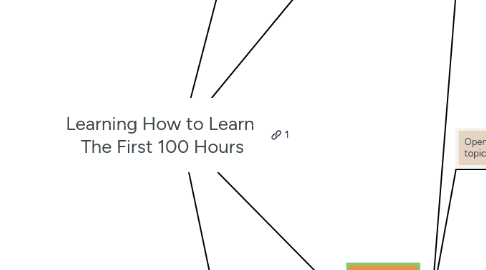
1. Expectations
1.1. Understand more about the neuroscience of learning
1.2. Understand more about how the different memory “systems” work
1.3. Focus better
1.4. Master the benefits of rest in its different forms
1.5. Master the different learner types and know which one you are and want to be
1.6. Understand most of the different skills types and how to balance your learning
1.7. Understand the role of talent in learning and what geniuses are
1.8. Understand better when to practice what skills
1.9. Understand the concept of multiple intelligences and how to apply it in your learning
1.10. Know the learning myths and how to avoid them
1.11. Understand how to build habits and routines
1.12. Master the art of scoping your learning project
1.13. Master the process of reflecting on your progress
1.14. Get much better at finding the right resources
1.15. Start to establish a power napping routine (without necessarily succeeding right away)
1.16. Master spaced repetition and apply it for every skill you learn
1.17. Take more effective notes
2. Prepare
2.1. Study and apply what you learn
3. Practice
3.1. Spend about 20-30 minutes daily to increase your knowledge.
3.2. Open this skill tree and pick and choose topics that have a heart next to it.
3.2.1. Start with Spaced Repetition (under Techniques > Memory)
3.2.2. Study are the neuroscience behind learning (see Brain > Neuroscience) and resting (see Concepts > Rest)
3.2.3. Invest a good amount of time learning about habits and routines (see Concepts > Habits) and energy (see Concepts > Energy)
3.2.4. If you’re looking for new skills to learn and don’t know how to choose, check out the resources on Learner Types, Talent, and Multiple Intelligences (all under Concepts).
3.2.5. Look at the Myths (Concepts > Myths) and the theory behind memory (Brain > Memory and Techniques > Memory)
3.3. Focus on practice mostly, which will create your neural connections in a different part of your brain.
3.3.1. If the skills you want to work on needs you to memorize many facts, focus more time on learning about memory techniques.
3.4. Work on your habits and routine.
3.4.1. They take time to build. So start now.
3.5. Try to power nap a few times a week
3.5.1. It takes time to master it. So start now.
3.6. Apply to principles you learn about energy management.
3.7. Finish the Learning How to Learn course
3.8. Spend a few hours every week to continue the lessons.
3.9. As much as you can, do the exercises proposes by the professor.
4. Ponder
4.1. Reflect weekly and monthly. Spend at least 30 minutes on your weekly reflection and 1 hour on your monthly reflection.
4.1.1. What have I learned? What did I truly understood?
4.1.2. What have I not understood? Why? What can I do to understand better?
4.1.3. How will I apply what I learned?
4.1.4. What do I want to do going forward?
4.1.5. Who can I teach what I learned to?
4.2. At the end of your 100 hours, ask yourself the following questions:
4.2.1. Do I understand what’s happening in my brain when I learn?
4.2.2. Do I know how to focus better? Am I more focused now that I know the theory?
4.2.3. Do I know how to manage my time and energy better? Am I able to build good habits and routines?
4.2.4. Do I understand the different types of learners, skills, and intelligences? Am I apply that in my learning?
4.2.5. Have I used some of the techniques that I’ve learned, like resting, note-taking, space repetition, and others?
4.2.6. What techniques have been the most valuable for me?
4.2.7. What are some concepts I should spend more time on?
